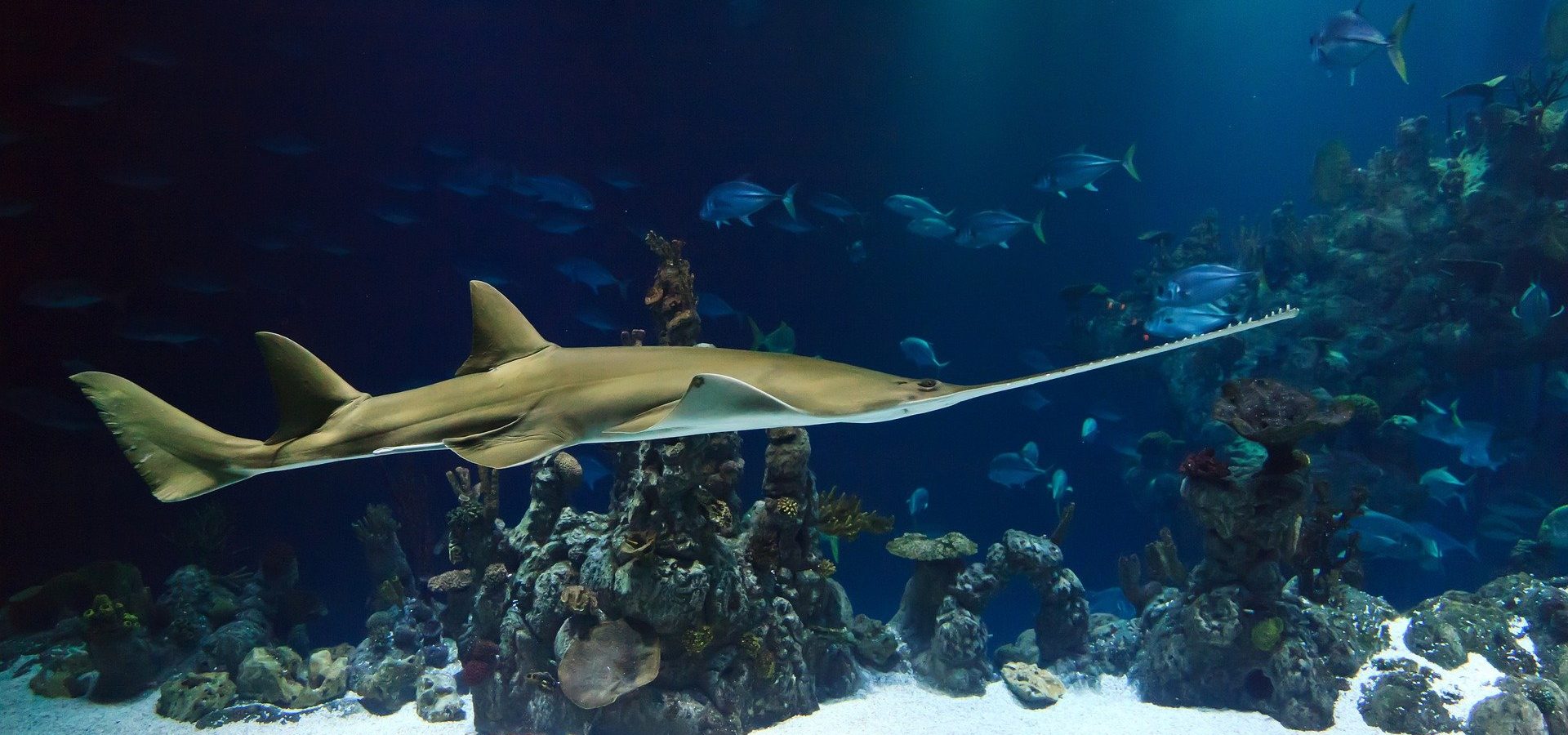Sharks are one of the most misrepresented and misunderstood species. The name itself elicits a fear — a fear of being consumed by the giant swimming underwater. The voracious nature of sharks has been popularised through cinema and video games. According to Google trends, the term ‘shark attack’ is popularly searched in 43 countries, the most from Australia.
However, you’ll be surprised to know that one is 30 times more likely to be struck by lightning than being bitten by a shark. Sharks aren’t the ‘dangerous human hunters’ we have assumed them to be.
This Shark Awareness Day, let’s bust some myths and learn about sharks!
Myth #1: All sharks are man-eaters.
Sharks largely prey upon numerous aquatic animals like seals and dolphins. Some even consume fish and invertebrates. They have various mechanisms to feed on their prey. For instance, Whale sharks, Megamouths, and Basking sharks are filter feeders, which means, they don’t use teeth, but sift out planktons when they consume water. Nurse sharks, on the other hand, use a technique that involves their muscular pharynx to break down their meagre meal of bottom-dwelling sea animals.
Sharks don’t consider humans as their meals. From over 500 shark species that exist in the world, only a dozen of them are known to have attacked humans. Most shark attack incidents that occur are either due to human actions such as feeding, touching, fishing, or venturing too close to them, or out of the shark’s own fear and curiosity.
Myth #2: Sharks face no threats and are the ultimate predators.
For more than 450 million years, most shark species have been the top predator in the oceans — playing a vital role in maintaining an ecological balance. They have even survived through all the five mass extinction events. While they still hold their position at the top of the marine food chain, humans have managed to threaten their populations. Annually, we hunt about 100 million sharks for their meat, fin, or even out of fear. Numerous die due to unregulated fishing activities and use of ghost nets. It is true that sharks have nearly no natural predators, but the greatest threat to them is actually humans!
Myth #3: Shark fins can re-grow.
Traders catch hold off sharks, slice off their fins, and discard their remaining bodies back in the waters. Although the sharks may not immediately die, the lack of fins impedes their survival.
Myth #4: Shark parts can cure illnesses.
Since the 13th century, shark fin soup has been considered a delicacy in several Asian countries. This is one of the major reasons why sharks are illegally traded globally. Sharks fall under the class of Elasmobranchii as they are cartilaginous fish and lack true bones. It is widely believed that shark cartilage can be used to treat cancer. No scientific or medical research has been able to corroborate this, and yet, people have introduced dietary supplements of shark cartilage products. This misfounded assumption has promoted rampant shark hunting and killing.
Myth #5: Sharks can smell a single drop of blood from across the ocean.
Since time immemorial, sharks have been portrayed, especially in movies, as having a sense of smell so strong that they can sense a single drop of blood far away in the vast ocean, and then, rush to kill within seconds! Although they do have a heightened olfactory system lined with sensory cells, and they can smell blood over a quarter of a mile away, the scent itself doesn’t reach the shark instantly. It takes time for smell particles to eventually reach the shark, and it is unlikely to make the shark lunge for human blood.
Myth #6: Sharks are massive creatures.
Undoubtedly, sharks are giants in the oceans. The largest of all sharks, Whale sharks, can grow up to 18 metres in length! Some more like Hammerhead sharks and Great white sharks are also hefty in size. But, not all sharks are gigantic. In fact, the rare Dwarf lantern shark can fit into your hand! Pygmy sharks and Ghost cat sharks also grow to only about a few inches in length.
Myth #7: All sharks are ocean surface-dwellers.
While some sharks inhabit the ocean surfaces and coasts, many species are actually found in the deep sea. The bizarre Cookiecutter shark has been known to hunt at incredible depths of even 3.7 kilometres below sea level! Others like the Bluntnose sixgill shark and Greenland shark also reach below 1,500 metres in the oceans.
Moreover, some unique species have even adapted to thrive in freshwater environments such as rivers and lakes. The ‘Critically Endangered’ Ganges shark only inhabits the river systems of India. Few, such as Speartooth sharks and Bull sharks, swim across both freshwater and marine waters of the world.
Myth #8: Sharks are small-brained.
Often considered to have walnut-sized brains, sharks are actually quite sharp. Their brain-to-body size ratio is similar to that of birds and mammals. Several studies have described sharks to be smart and curious. The intelligence of a shark is displayed by its complex social behaviours and excellent communication tactics.
Sharks don’t seem as scary anymore, now that we’ve set the record straight on these misconceptions! By controlling the population of other animals, sharks are, in fact, significant predators in their own aquatic ecosystems.
To keep up with interesting content on wildlife, subscribe to the Wildlife SOS newsletter!





